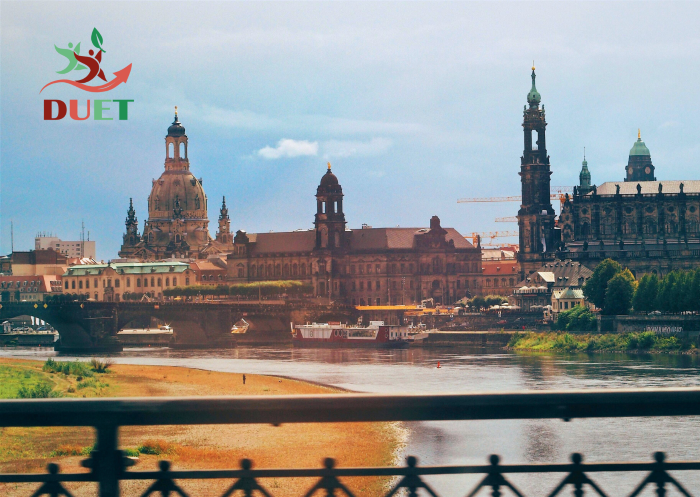 Dresden is a city in Germany known for its beautiful architecture, rich history, and innovative approaches to sustainable development. The city is dynamically evolving, introducing numerous initiatives aimed at environmental protection, energy efficiency, and improving the quality of life for its residents.
Dresden is a city in Germany known for its beautiful architecture, rich history, and innovative approaches to sustainable development. The city is dynamically evolving, introducing numerous initiatives aimed at environmental protection, energy efficiency, and improving the quality of life for its residents.
One of the groundbreaking projects in Dresden is CUBE, the world's first building made of carbon concrete, located on the campus of the Technical University of Dresden. This project, funded by the Federal Ministry of Education and Research, exemplifies innovative architectural and construction solutions. The building consists of a system of double walls reinforced with carbon, which allows for a significant reduction in CO2 emissions and minimisation of raw material consumption. Carbon concrete is lighter and more durable than traditional concrete, contributing to reduced resource use in construction processes and cutting CO2 emissions from the construction sector by up to 50%.
Another notable initiative is the Dresden-Klotzsche Biogas Plant, launched in September 2010. It uses renewable raw materials and cattle manure to produce biogas, which is converted into electricity and heat in a cogeneration plant. This contributes to reducing CO2 emissions. The biogas plant produces electricity and heat through a cogeneration process, increasing the share of renewable energy sources in the city's energy mix.
The Transparent Factory in Dresden, owned by Volkswagen AG, is the first CO2 neutral factory. It produces Volkswagen ID.3 electric cars, using only green energy. The facility is equipped with a unique heat regulation system and the largest public charging station for electric vehicles in Dresden. These solutions help save up to 3,600 tonnes of CO2 annually.
Dresden also develops innovative urban projects like KLIPS, which uses an information platform and a network of sensors to locate urban heat islands and forecast and simulate them using artificial intelligence. This platform enables precise urban planning that minimises the formation of heat islands, warns residents about them, and allows for planning preventive actions.
The MAtchUP project aims to transform Dresden into a smart European city. It focuses on energy efficiency, renewable energy sources, mobility, and citizen participation. The project activities include creating a smart and energy-efficient district in Johannstadt and equipping buildings with modern energy management systems. This project helps save energy and promotes the development of smart cities.
Similarly, the NEUTRALPATH project aims to develop districts with a positive energy balance and clean energy (PCED). As the project leader, Dresden implements technologies for decarbonising the urban heating system and develops low-emission heating branches. The project supports partner cities in achieving climate neutrality by promoting innovative city management strategies.
Through these innovative projects, Dresden becomes a model for other cities, showing how modern technologies and eco-friendly solutions can be effectively implemented in urban spaces. More information about these practices can be found in the publication: "Energy management in the city. Good practices".


